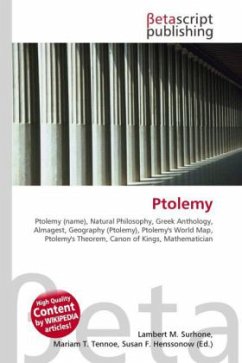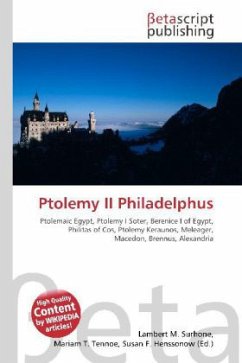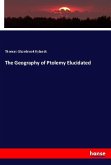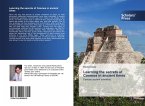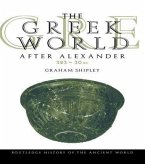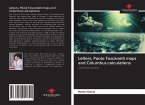Please note that the content of this book primarily consists of articles available from Wikipedia or other free sources online.Claudius Ptolemaeus (Greek: Klaúdios Ptolemaîos; c. AD 90 c. 168), known in English as Ptolemy (pronounced / t l m /), was a Roman citizen of Greek or Egyptian ancestry. He was a mathematician, astronomer, geographer, astrologer and a poet of a single epigram in the Greek Anthology. He lived in Egypt under the Roman Empire, and is believed to have been born in the town of Ptolemais Hermiou in the Thebaid. He died in Alexandria around AD 168. Ptolemy was the author of several scientific treatises, three of which would be of continuing importance to later Islamic and European science. The first is the astronomical treatise now known as the Almagest (in Greek, , "The Great Treatise", originally , "Mathematical Treatise"). The second is the Geography, which is a thorough discussion of the geographic knowledge of the Greco-Roman world. The third is the astrological treatise known in Greek as the Apotelesmatika ( ), or more commonly in Greek as the Tetrabiblos ( "Four books"), in which he attempted to adapt horoscopic astrology to the Aristotelian natural philosophy of his day.
Bitte wählen Sie Ihr Anliegen aus.
Rechnungen
Retourenschein anfordern
Bestellstatus
Storno

